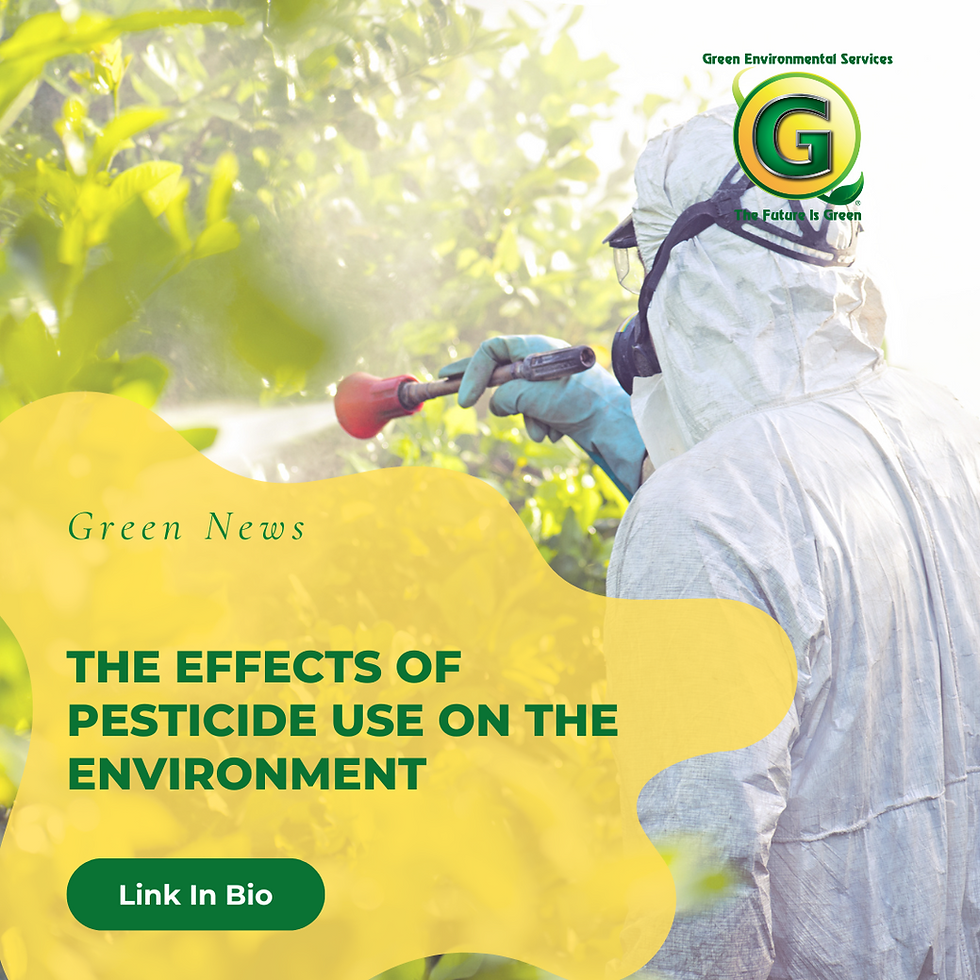The Effects of Pesticide Use on the Environment
- Green Environmental Services
- Aug 18
- 2 min read

Pesticides are commonly used in agriculture, landscaping, and even residential areas to control pests and protect crops. While they can be effective at preventing damage, their widespread use has serious consequences for the environment.
One of the most significant impacts of pesticide use is water contamination. When pesticides are sprayed on fields or lawns, rain and irrigation often wash them into streams, rivers, and groundwater. This runoff can harm aquatic ecosystems, killing fish, amphibians, and other organisms that are vital to maintaining balanced ecosystems. In some cases, contaminated water sources can even pose risks to human health.
Pesticides also affect biodiversity on land. Many chemicals do not only kill harmful pests but also impact beneficial insects such as bees, butterflies, and ladybugs. Pollinators are especially vulnerable, and their decline has been linked to pesticide exposure. Without healthy pollinator populations, many crops and plants struggle to reproduce, which disrupts natural food chains and ecosystems.
Soil health is another area of concern. Repeated pesticide use can reduce the beneficial microorganisms in soil, leading to decreased fertility over time. This means that while pesticides may provide short-term protection for crops, they can harm long-term agricultural productivity.
Finally, pesticides can accumulate in the food chain through a process called bioaccumulation. When small organisms ingest pesticide residues, those chemicals move up the food chain as predators consume prey. Birds, mammals, and even humans can experience health effects from this buildup, including reproductive issues and weakened immune systems.
At Green Environmental Services, we recognize the importance of protecting our environment from the harmful effects of pesticides. By promoting safer, more sustainable alternatives, we can reduce pollution, preserve biodiversity, and support healthier ecosystems for future generations.








Comments